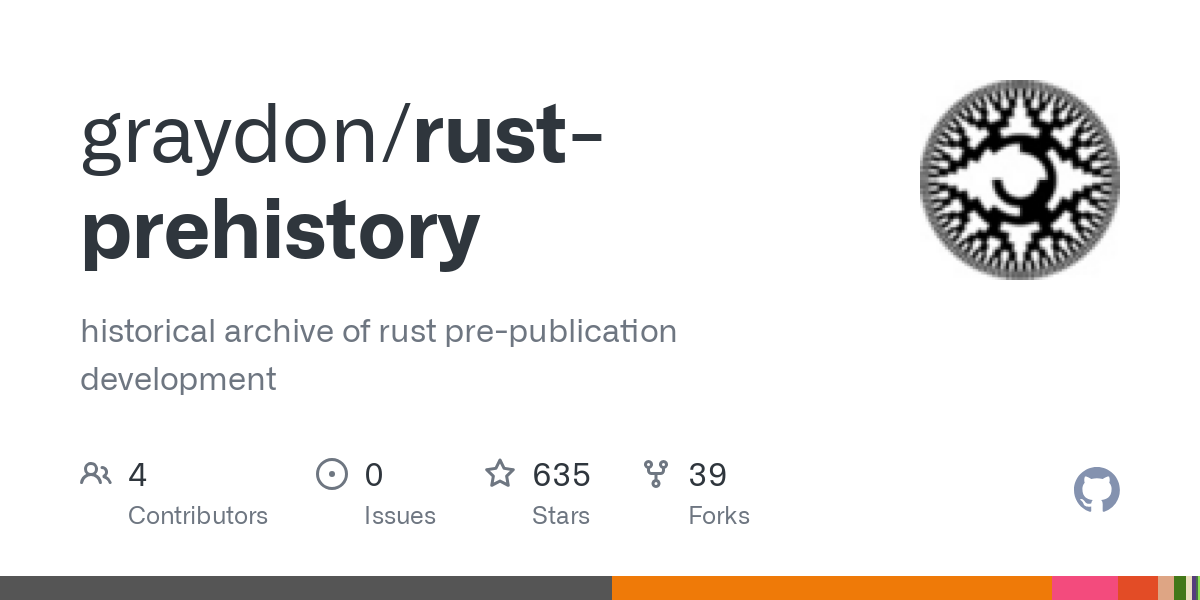graydon/rust-prehistory: historical archive of rust pre-publication development
(github.com)
from armchair_progamer@programming.dev to rust@programming.dev on 17 Aug 2024 05:33
https://programming.dev/post/18228889
from armchair_progamer@programming.dev to rust@programming.dev on 17 Aug 2024 05:33
https://programming.dev/post/18228889
Excerpt:
This is a reconstruction – extracted and very lightly edited – of the “prehistory” of Rust development, when it was a personal project between 2006-2009 and, after late 2009, a Mozilla project conducted in private.
The purposes of publishing this now are:
- It might encourage someone with a hobby project to persevere
- It might be of interest to language or CS researchers someday
- It might settle some arguments / disputed historical claims
Rust started being developed 18 years ago. This is how it looked until 14 years ago, where I believe the rest of development is on rust-lang/rust. The first Rust program looks completely different than the Rust we know today.

threaded - newest
😂
Only a small porition is OCaml. I’m making a C compiler in it and it could come useful. Did you know creators of OCaml (at least LeRoy) have created an entirely-verified C compiler called CompCert? Yeah mechanically verified with Coq! Ocaml is currently the best language for making compilers. Seeing as it is functional and Church-Rossier confluence applies to its expressions because its got no statements, but it’s got classes too and inheritnce so you can do stuff like visitor patterns, which is impossible in pure functional languages like Haskell.
I’m definitely doing a Rust compiler, one day. Maybe a subset? I’ll use c9x.me’s QBE. The good thing about Rust is, it’s like a functional language, but it’s really an imperative language. As for memory safety, this is the part that I hate because I like to use my chunky pointers to assure safety. So most of the times I’ll end up using C for my systems programs. But I have written several Rust programs before.
Thanks.